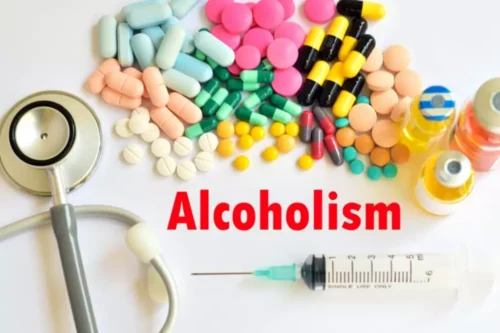
For example, Consroe et al found that pretreatment with CBD produced a diminution in blood alcohol level34 with no major impact on objective and subjective response to alcohol in humans. Drug addiction is a chronically relapsing disorder is cannabidiol addictive characterized by the compulsive desire to use drugs and a loss of control over consumption. Cannabidiol (CBD), the second most abundant component of cannabis, is thought to modulate various neuronal circuits involved in drug addiction.

Psilocybin Mushroom Spores: 4 Federally Legal Magic Mushroom Products For Research
- CBD doesn’t appear to be addictive, but that doesn’t mean that it is right for everyone.
- Currently, hemp cultivators are allowed to produce and sell the agricultural commodity under specified federal conditions, which Congress has yet to finalize.
- In one study, people who took a combination of CBD and THC experienced greater pain relief than those who took THC alone.
- Psychiatrists and researchers studying addiction report that pleasure-seeking is just one of the many factors contributing to addiction.
- CBD may be able to inhibit the rewarding and reinforcing effects of addictive substances (e.g., tobacco, cocaine, methamphetamine (METH), heroin, and morphine).
All that said, CBD can be a safe option, especially when it comes from a reputable source like Zebra CBD. Our CBD productslike our hemp pills, CBD gummies for sale, and CBD topical products are crafted with premium hemp extract and tested by independent, certified third-party labs to ensure our products meet the claims on our labels. Heavy, long-term marijuana use may also cause the body to produce increased dopamine over time, which can activate the body’s reward system. In more serious cases, liver injury can occur in prescription doses of the CBD product. In another trial, schizophrenic patients were given 600 mg per day of CBD oil for six weeks.

Common Side Effects of CBD
- Any product containing more than that amount is considered non-hemp cannabis, or marijuana, which contains significant amounts of THC.
- Hemp refers to any Cannabis sativa plant that contains 0.3% or less THC.
- Since CBD (cannabidiol) is not addictive, one cannot get addicted to CBD oil products.
- CBD has no psychoactive contents, making them non-addictive substances.
A cannabis Sativa plant will also have higher levels of pure CBD than hemp plants. The patient’s treatments for his bipolar disorder included pharmacological medications (Table 1). The patient was a 27-year-old male who presented with a long-standing diagnosis of bipolar disorder and a daily addiction to marijuana. His presenting concerns included erratic behaviors, anxiety, inconsistent sleep patterns, and irritability. He currently lives with his parents, works as a self-employed driver, and teaches chess to children.
Hemp-derived CBD vs. Marijuana-derived CBD
- Also, depending on the amount used and route of administration, these products have the potential to produce impairing drug effects.
- The suggested medicinal effects of CBD include decreasing anxiety, improving sleep, and providing other neuroprotective effects.
- Since CBD is not believed to be addictive, the likelihood of experiencing withdrawal symptoms when discontinuing its use is minimal.
- A number of different products have emerged that contain CBD, THC, or both.
Strengths of the present study include its pre-registered protocol, comprehensive systematic search strategy, and its timeliness as the first meta-analysis of the safety and tolerability of CBD across all indications. The overall quality of studies included was high and it is unlikely that a significant amount of bias was introduced. Publication bias is also unlikely to have inflated summary ORs, as our target outcomes were not the primary outcome measure, nor the desired outcomes for the studies we examined.

Clinical Findings

The U.S. Food and Drug Administration was recently given regulatory power over hemp, and has since enacted certain restrictions on CBD. It is now illegal to market CBD by adding it to food or labeling it as a dietary supplement. The CBD interaction with medicines may trigger a range of second-hand side effects that wouldn’t occur if you took CBD alone. We recommend consulting your doctor if you take any pharmaceutical medications and are afraid CBD may interfere with them. Since THC can be habit-forming, it’s important to know the difference between CBD oil sources. Dopamine may trigger and strengthen feelings of pleasure, but the activity that led up to this surge is even more significant.
The researchers reported that two-thirds of the participants experienced at least a 25% reduction in seizure frequency while receiving CBD treatment. In a 2018 clinical trial, 72 children and 60 adults with treatment-resistant epilepsy received 5–50 milligrams per kilogram of body weight (mg/kg) of CBD daily. Preliminary evidence suggests that CBD might lower the likelihood of developing cocaine and methamphetamine use disorders. It may also help prevent relapse after a period of detoxification and sobriety. Withdrawal from CBD does not lead to the same symptoms as other addictive substances, and ongoing research is shedding more light on this topic.
- All trials are believed to have used pure, pharmaceutical-grade CBD, with minimal other cannabinoids.
- The patient’s history included hospitalizations as a teenager for bipolar episodes.
- Co-administration of CBD and valproate does not significantly alter their plasma levels or that of their metabolites [32].
- And while heavy marijuana use can lead to dependence, current preclinical studies suggest that CBD is not an addictive substance, nor does it promote addictive behaviors in people.
- The specific side effects and their severity vary from one person to the next and from one type of CBD to another.
CBD vs. High Blood Pressure
A growing number of studies have focused on the effects of CBD on addiction. A 1993 study found that CBD blocked a family of enzymes called cytochrome P450, which are responsible for eliminating 70% to 80% of pharmaceutical drugs from the system. Researchers found that CBD blocked these enzymes from being broken down and metabolized in the liver. While this blockage could enable patients to take lower doses of prescription drugs, it could also cause a toxic buildup of pharmaceutical chemicals in the body. Since CBD (cannabidiol) is not addictive, one cannot get addicted to CBD oil products. In the off-chance that the product has a high level of THC (tetrahydrocannabinol), there is a chance that one could become addicted to CBD.
Researchers, healthcare professionals, and academics continue to explore the potential benefits of cannabidiol (CBD). CBD is a cannabinoid and one of over 400 chemical compounds present in the Cannabis sativa plant. Current evidence suggests that CBD use does not lead to addiction and that the substance may have a number of health benefits. However, it is also important to be aware that CBD does have some potential side effects. Evidence suggests that people can develop a tolerance to THC and may experience withdrawal symptoms.
The small number of studies in each category and their heterogeneity makes the comparison difficult, if not impossible. Overall, CBD was found to have an impact on the intoxication and relapse phase of opioid addiction. Data on its effect during the withdrawal phase remain conflicting and vary based on co-administration of other cannabinoids such as THC. CBD can have various health benefits, from pain management to helping with cancer symptoms; CBD is utilized in many different forms and settings.
